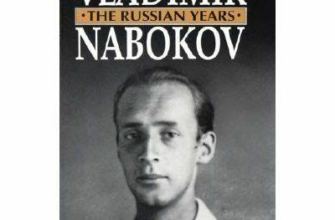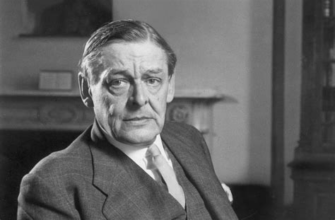In the realm of literary geniuses, there exists an eminent figure whose name echoes through the corridors of time. This luminary artist, revered for his profound influence on the world of literature, has woven tales that have captivated audiences for centuries. As we embark on a journey retracing the footsteps of this prolific playwright, we delve into the depths of his creative mind and gain a deeper understanding of his remarkable contributions to the realm of dramatic arts.
Our expedition into the realms of ingenuity takes us on a voyage through the life and works of one of history's most celebrated penmen. Within the pages of history, we encounter a man whose words forged a path for future generations of writers and encapsulated the essence of the human experience. Immersed in a tapestry of emotions and metaphors, this virtuoso transported audiences to worlds both real and imagined, revealing insights that still resonate today.
Through the veils of time, we unearth the extraordinary tales and sonnets that have come to define this unparalleled wordsmith. With skilful penmanship and a profound understanding of the human condition, he breathed life into characters and stories that continue to resonate with audiences worldwide. The eloquence of his poetic verses, coupled with the depth of his characters, ensured his works stood the test of time, remaining an integral part of the literary canon.
Early Life and Background

In this section, we will explore the formative years and background of the legendary playwright, delving into his upbringing, familial roots, and the environment that shaped his future. Discover the factors that played a crucial role in molding his artistic genius as we unravel the tales of Shakespeare's formative years.
- Discover the unique experiences and influences that shaped Shakespeare's childhood
- Uncover the lesser-known details about his family and ancestral background
- Explore the geographical and social milieu in which Shakespeare grew up
- Learn about the educational opportunities available to him and their impact on his early development
- Gain insights into the societal and cultural climate that catalyzed his creative journey
- Unearth the early passions and interests that hinted at Shakespeare's future literary brilliance
By delving into the early life of William Shakespeare, we can begin to grasp the foundations upon which his incredible legacy was built, gaining a deeper appreciation for the man behind the timeless words and captivating characters.
Shakespeare's Works: A Synopsis of His Plays and Poems
Delve into the captivating realm of one of history's most revered literary figures and explore the extensive repertoire of plays and poems left behind by the enigmatic playwright. From tales of love and tragedy to historical chronicles and comedic masterpieces, Shakespeare's works span across genres, offering a profound glimpse into the human condition.
His plays, characterized by their impeccable language and timeless themes, continue to resonate with audiences worldwide. With works like "Romeo and Juliet" and "Macbeth", he delved deep into the complex emotions of love, betrayal, ambition, and repentance, captivating spectators with his astute understanding of human nature.
Furthermore, Shakespeare's historical plays, such as "Richard III" and "Henry V", transport us back in time, shedding light on the political intrigues and power struggles of the Elizabethan era. These plays serve as both a source of entertainment and an educational gateway to the past.
In addition to his plays, Shakespeare's poetry is equally awe-inspiring. From his sonnets to his narrative poems, such as "Venus and Adonis" and "The Rape of Lucrece", his mastery of language and poetic form shines through. Through these verses, he explores themes of love, beauty, and the transient nature of life, leaving readers captivated by his lyrical prowess.
Undoubtedly, Shakespeare's works have left an indelible mark on the literary landscape, transcending time and language barriers. Whether you are a seasoned enthusiast or new to his creations, immersing yourself in the brilliance of his plays and poems is an enriching experience that will continue to captivate and inspire for generations to come.
The Globe Theatre: Exploring Shakespeare's Theatrical Environment

In this section, we delve into the vibrant world of the Globe Theatre, an iconic establishment that played a pivotal role in shaping William Shakespeare's theatrical career. With its history steeped in dramatic performances and an atmosphere pulsating with creative energy, the Globe Theatre serves as an extraordinary backdrop to understand the essence of Shakespeare's works.
An Immersive Theatrical Landscape: The Globe Theatre embodied an immersive experience, captivating the audience with its unique design and layout. Its circular structure, featuring an open-air stage in the center, ensured that the spectators were intimately connected to the unfolding stories. The lively interaction between the actors and the audience created an electric atmosphere, fostering engagement and emotional resonance.
The Creation of Shakespearean Masterpieces: Within the confines of the Globe Theatre, William Shakespeare crafted some of the most enduring masterpieces of the English language. The dynamic environment, characterized by the buzzing anticipation of the audience, provided the perfect breeding ground for his creativity. Shakespeare's imaginative genius was fueled by the energy of the Globe Theatre, enabling him to explore complex themes, craft intricate characters, and deliver powerful narratives that continue to enthrall audiences worldwide.
Theatrical Elements and Performances: The Globe Theatre's influence extended beyond its physical structure. It served as a hub for actors, playwrights, and musicians to collaborate and refine their craft collectively. Numerous performances of Shakespeare's plays were staged at the Globe, showcasing a fusion of skilled acting, poetic dialogues, and mesmerizing music. Examining the popular theatrical techniques employed during this era sheds light on the artistic ingenuity that enriched Shakespeare's works.
A Historical and Cultural Icon: The Globe Theatre holds immense historical significance, representing the vibrant theater culture of Elizabethan England. It offers a glimpse into the social, political, and artistic context in which Shakespeare thrived. Exploring the Globe Theatre's impact on society helps us appreciate the enduring legacy of Shakespeare's plays and their continued relevance in contemporary times.
In conclusion, delving into the world of the Globe Theatre provides invaluable insights into the environment that shaped Shakespeare's theatrical brilliance. Examining the immersive experience, creative process, artistic collaborations, and historical context surrounding the Globe Theatre enhances our understanding of Shakespeare's unparalleled contributions to the realm of literature and drama.
Shakespeare's Impact on Language: Popular Phrases Coined by the Bard
Renowned for his eloquence and literary brilliance, the esteemed playwright and wordsmith left an indelible mark on the English language. This section explores the enduring influence of Shakespeare through the introduction of phrases and expressions that originated in his works.
| Phrase | Origin | Meaning |
|---|---|---|
| All that glitters is not gold | The Merchant of Venice | Appearances can be deceiving |
| Brevity is the soul of wit | Hamlet | Being concise and to the point shows intelligence |
| Break the ice | The Taming of the Shrew | To initiate or start a conversation |
| Love is blind | The Merchant of Venice | When in love, one cannot see faults or flaws |
| Wild-goose chase | Romeo and Juliet | A pointless or fruitless pursuit |
| Wear one's heart on one's sleeve | Othello | To openly and vulnerably display one's emotions |
These are merely a handful of the countless phrases that have become ingrained in the English lexicon thanks to Shakespeare's masterful pen. His rich vocabulary, creative wordplay, and astute observations of human nature continue to resonate and shape the way we communicate today.
Controversies and Discussions Surrounding the Authorship of Shakespeare's Works

This section delves into the various disputes and debates that have arisen surrounding the true authorship of the works commonly attributed to the renowned Elizabethan playwright. It explores the controversies from a critical standpoint, focusing on the differing theories and arguments put forth by scholars, researchers, and literary enthusiasts over the years.
- The Oxfordian Theory: This theory suggests that the Earl of Oxford, Edward de Vere, was the actual author of Shakespeare's plays and poems. Advocates of this theory point to similarities in the language, life experiences, and social milieu of De Vere and the themes presented in Shakespeare's works.
- The Baconian Theory: This theory proposes that Sir Francis Bacon, a prominent philosopher and statesman of the Elizabethan era, was the true author behind the Shakespearean works. Supporters of this theory argue that Bacon possessed the intellectual capabilities and access to resources necessary to produce the plays and poems attributed to Shakespeare.
Other controversial authorship candidates include Christopher Marlowe, Queen Elizabeth I, and various collaborative writing groups. These debates have sparked intense scholarly discussions, with proponents of each theory offering evidence and counterarguments to support their claims.
Despite the widespread acceptance of William Shakespeare as the author of his works, the controversy surrounding the true identity of the author continues to captivate and intrigue literary scholars and enthusiasts worldwide. The ongoing debates highlight the complexity and enduring fascination with the legacy of Shakespeare's writings, as well as the enduring enigma of his authorship.
Shakespeare's Influence on the Renaissance and Contemporary Literature
In this section, we will explore the profound impact of the renowned playwright and poet on the cultural and literary landscape of the Renaissance period as well as his enduring influence on modern-day literature. Through his extraordinary ability to captivate audiences with his imaginative storytelling and thought-provoking themes, Shakespeare left an indelible mark on the artistic world, transcending time and continuing to shape the way we perceive and engage with literature.
Shakespeare's magnum opus showcased his mastery of language and his deep understanding of human nature. His works, characterized by their poetic brilliance, intricate character development, and exploration of universal themes, served as a catalyst for the flourishing of literary and dramatic achievements during the Renaissance.
Not only did Shakespeare's plays and sonnets provide an unparalleled source of entertainment, but they also served as a mirror through which society could reflect upon its own complexities. He fearlessly delved into societal issues, human emotions, and moral dilemmas, giving voice to a range of characters from different social classes and backgrounds. Through his richly textured narratives, Shakespeare challenged societal norms and offered profound insights into the human condition.
His innovative use of language and his creation of iconic characters have had a lasting impact on modern literature. Shakespeare's influence can be felt in numerous literary works today, from classic novels to contemporary plays. His ability to fuse tragedy and comedy, to explore the depths of human passion and despair, and to craft unforgettable dialogues continues to inspire generations of writers.
In conclusion, Shakespeare's creative genius not only shaped the Renaissance period but also laid the foundation for the development of modern literature. His profound understanding of the human psyche and his ability to depict the complexities of human experience make his works timeless and universally relevant. Shakespeare's impact on both his contemporaries and future generations is a testament to his unparalleled talent and enduring legacy.
Legacy and Significance of Shakespeare's Works in Modern Society

In the realm of contemporary culture, the lasting impact and value of William Shakespeare's literary contributions remain profoundly influential. His works, renowned for their timeless themes, artistic brilliance, and linguistic virtuosity, continue to captivate audiences across the globe. The exceptional legacy of Shakespeare's plays and poems resides not merely in their historical context but in their profound ability to resonate with and illuminate the human experience.
Permanence and Universality: Shakespeare's writings possess an enduring quality that transcends the boundaries of time and space. The universal themes of love, power, betrayal, and ambition explored in his plays strike a chord with audiences from all walks of life, transcending cultural, linguistic, and societal barriers. Shakespeare's works speak to the core of the human condition, making his creations profoundly relatable and applicable to contemporary society.
Literary and Artistic Mastery: Shakespeare's unparalleled command of language, coupled with his imaginative storytelling, continues to elevate his works to the pinnacle of artistic excellence. His richly textured characters and intricate plots immerse readers and viewers in a world filled with depth, emotion, and insight. The enduring popularity of his works is a testament to his ability to craft complex narratives that maintain their relevance and impact centuries after their creation.
Educational and Scholarly Importance: Shakespeare's works serve as a cornerstone of literature education, providing students with a comprehensive understanding of the power and potential of the written word. Studying Shakespeare not only enhances critical thinking and analysis but also fosters a deeper appreciation for the complexities of human nature. His plays and poems continue to be a vital part of academic curricula, enabling future generations to engage with his profound insights and unravel the depths of his storytelling prowess.
Cultural Influence and Adaptation: Shakespeare's works have left an indelible mark on the arts, inspiring countless adaptations, interpretations, and reimaginations in various mediums. From theater productions and film adaptations to music, visual arts, and even contemporary literature, the influence of Shakespeare can be seen pervading numerous artistic expressions. His works have become a wellspring of inspiration, providing a foundation from which contemporary artists can explore and reinterpret his timeless themes within the context of modern society.
Social Commentary and Relevance: Shakespeare's works often delve into social and political issues of his time, allowing for insightful commentary on the human experience that remains strikingly pertinent today. Whether tackling themes of gender, power dynamics, racial discrimination, or societal inequality, Shakespeare's works offer a lens through which contemporary society can reflect upon its own complexities and challenges. By examining his characters' triumphs and flaws, audiences have the opportunity to reassess their values and provoke meaningful dialogue about the issues that persist in our world.
In summary, Shakespeare's literary legacy is a profound testament to his exceptional creativity and deep understanding of the human condition. His works continue to shape and enrich contemporary society through their universality, artistic brilliance, educational significance, cultural influence, and relevance as a catalyst for social commentary. The lasting impact and value of Shakespeare's contributions extend far beyond his own historical context, providing a timeless source of inspiration and insight for generations to come.
FAQ
What are the most famous works of William Shakespeare?
William Shakespeare is renowned for his numerous works, but some of his most famous plays include Romeo and Juliet, Hamlet, Macbeth, Othello, and A Midsummer Night's Dream.
What was William Shakespeare's writing style?
William Shakespeare used a combination of poetry and prose in his works. He often employed iambic pentameter, a verse form consisting of ten syllables per line, with the stress falling on every second syllable.
How did William Shakespeare influence literature and the English language?
William Shakespeare's works have had a profound impact on literature and the English language. His plays introduced new vocabulary, phrases, and expressions that are still commonly used today. Shakespeare also expanded the possibilities of dramatic storytelling and character development.
Was William Shakespeare well-known during his lifetime?
Yes, William Shakespeare was well-known during his lifetime. He was a successful playwright and actor in London, and his works were performed to both royal and public audiences. However, it was after his death that his reputation and influence truly flourished.
What is the controversy surrounding William Shakespeare's authorship?
There have been theories and debates questioning whether William Shakespeare was the true author of the plays attributed to him. Some suggest that other individuals, such as Francis Bacon or Christopher Marlowe, may have written the plays. However, there is overwhelming evidence supporting Shakespeare's authorship, including his contemporaneous fame and the existence of documentation linking him to the plays.
When and where was William Shakespeare born?
William Shakespeare was born in Stratford-upon-Avon, England, in 1564.



